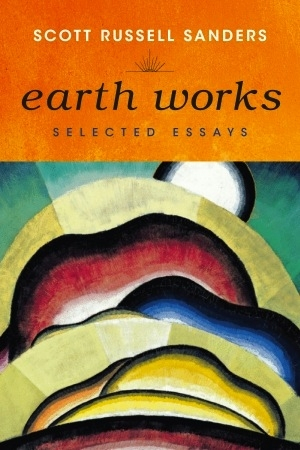Earth Works
Selected Essays
“The greatest theme in American literature,” writes Scott Russell Sanders, “is the search for right relations between humankind and nature, between civilization and wildness.” It is a theme central to Sanders’s own award-winning work: twenty books of fiction and nonfiction. Earth Works collects thirty of his essays, nine of which are new.
Sanders takes exception to the label “nature writer”—“as if paying attention to our membership in the web of life were a specialized interest, like following sports or fashion or cuisine.” He prefers the term “Earth writer,” since he is interested in all life and its intricate interrelations. “Nothing less than the undivided universe can be our true home. Yet how can one speak or even think about the whole of things?” This is Sanders’s project: the whole of things.
It’s a project he has undertaken conscientiously, schooling himself in the essay and in the writings of his predecessors: Emerson, Thoreau, Aldo Leopold, and Wendell Berry. He takes to heart the idea that the essay bares the writer more than any other form, and excavates his own feelings—and at times, failings—completely. He considers at length not only man’s relation to nature, but all of his own daily and most urgent relations: playing sports or quarrelling with his son, using his father’s carpentry tools, standing up in his daughter’s wedding, revisiting the location of childhood epiphanies. How should men look at women? What does it mean to be alive during an era when the Earth is being gutted to feed the engines of consumption? What is the best way to live?
Having grown up in a military zone called “the Arsenal,” Sanders is forever aware that modern man is living in a minefield. Having watched and worried over an alcoholic father, he’s also aware of man’s potential for destroying himself from within. Americans, in particular, he feels, are too quick to “sever the bonds between person and place,” while it is the deep and daily knowledge of place that offers hope for peace and health—for both the individual and society. “If only we could be adequate to the given world,” he writes, “we need not dream of paradise.”
Feeling, as he does, that “all is manifestly not right with the world,” Sanders is driven to examine the moments when he does feel at home, the sources of his joy, in order to wrest some wisdom from them. He is a man haunted by the image of charred deer, trapped between fire and a chain link fence; and he is also a man who pores over photos of his daughter’s wedding and photos from deep space, “trying to figure out why such different images … set up in [him] the same hum of delight.”
At times, the scope of his project presses Sanders up against the limits of language. Like Emerson, he struggles “to describe what lurk[s] at the edges of perception.” And here is perhaps where Sanders is most himself. He values “engagement with a reality so large as to render the perceiving self insignificant,” and he admires “the long, slow accumulation of knowledge that informs our simplest acts.” His essays follow suit, layering question and detail, moving doggedly, relentlessly, toward the transcendent. His scrutiny is thorough, his insights thought-provoking; but sometimes, when he moves to the edge of what can be argued, he soars into the lyric. At some point, our words and ideas fail us, and we are returned to our membership in the universe. And when that happens, “then drink deep like the baby, swim like the salmon, burn like any brief star.”
Reviewed by
Teresa Scollon
Disclosure: This article is not an endorsement, but a review. The publisher of this book provided free copies of the book and paid a small fee to have their book reviewed by a professional reviewer. Foreword Reviews and Clarion Reviews make no guarantee that the publisher will receive a positive review. Foreword Magazine, Inc. is disclosing this in accordance with the Federal Trade Commission’s 16 CFR, Part 255.

